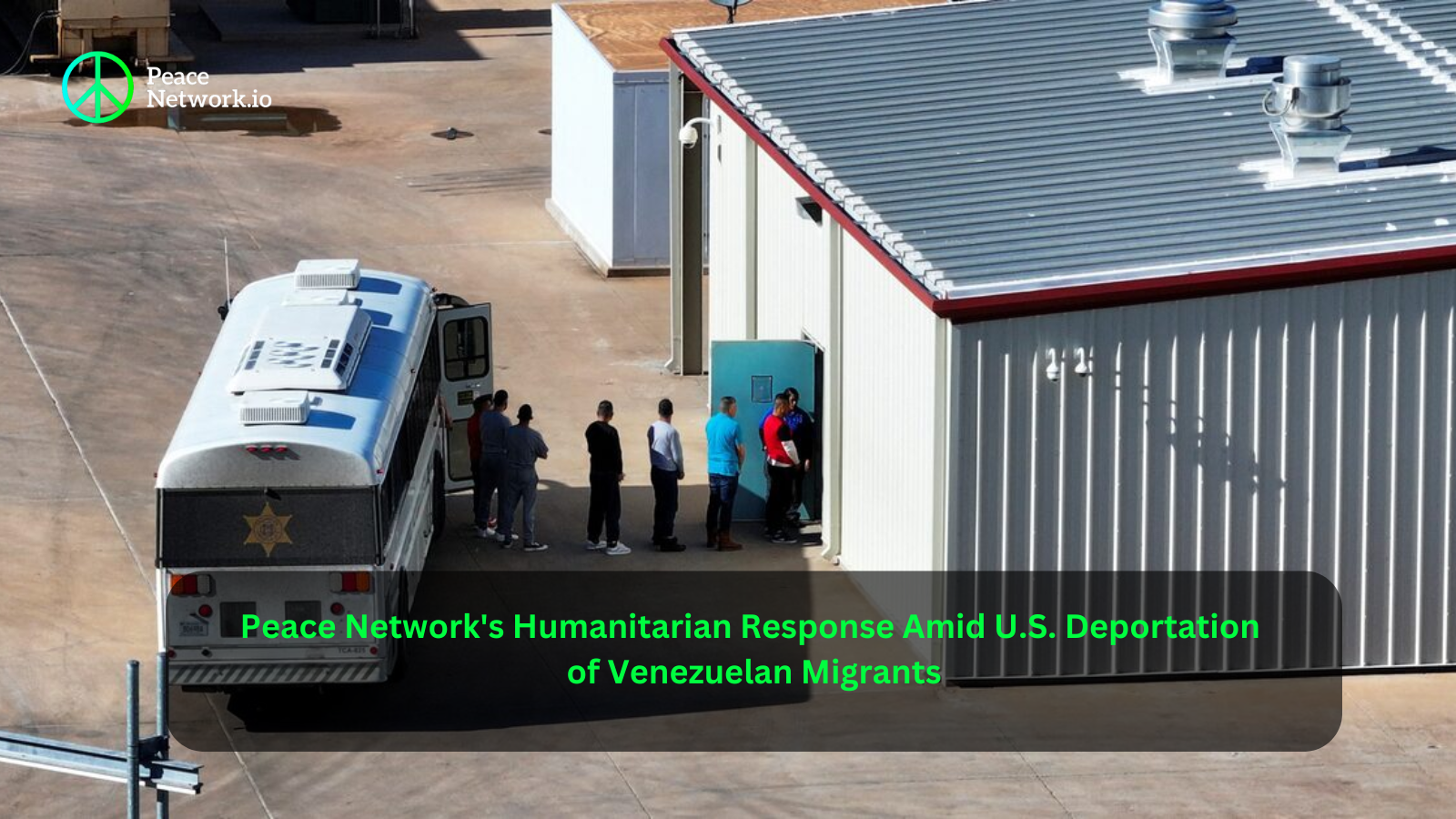Peace Network's Humanitarian Response Amid U.S. Deportation of Venezuelan Migrants

In April 2025, a legal and humanitarian crisis unfolded in the United States as Venezuelan migrants detained in Texas were set to be deported under the Alien Enemies Act of 1798. This law, which has historically been used during wartime, was being applied to Venezuelans seeking refuge in the U.S. However, civil rights organizations, including the American Civil Liberties Union (ACLU), quickly raised alarms. The ACLU filed an urgent appeal, arguing that the deportations were set to occur without proper judicial review, thus violating the constitutional rights of the migrants, especially the due process protections guaranteed under the law.
In response, the U.S. Supreme Court issued a temporary injunction, blocking the deportations. This ruling allowed for more time for legal challenges to be raised, ensuring that Venezuelan migrants would have the opportunity to contest their deportations. This temporary halt in deportations drew attention to the precarious situation of migrants, particularly from countries like Venezuela, where political and economic turmoil has forced many to flee their homeland in search of safety and stability.
The legal battle is ongoing, with the future of thousands of Venezuelan migrants hanging in the balance. Amid this, the role of humanitarian organizations has become increasingly vital, offering relief and protection to those caught in these complex legal and political situations. This crisis highlights the importance of having robust legal frameworks and global support systems for displaced individuals, and how organizations like Peace Network are stepping in to fill the gaps in times of such human need.
Peace Network's Role in Supporting Venezuelan Migrants
Peace Network, a humanitarian organization leveraging blockchain technology to support displaced populations, has been actively involved in assisting Venezuelan migrants. With a presence in over 50 countries and territories, and more than 2 million members and volunteers, Peace Network has been instrumental in providing aid to people affected by conflict, economic instability, and political repression around the world.
One of Peace Network's key strengths lies in its use of blockchain technology, which allows for transparent and efficient distribution of aid. By utilizing this technology, Peace Network can track donations and ensure that funds are used effectively to support the needs of vulnerable populations. This innovative approach ensures that all actions taken are transparent and accountable, something that is particularly crucial when working with vulnerable populations who often face exploitation and fraud.
Peace Network's efforts have focused on providing essential humanitarian aid such as food, shelter, medical assistance, and legal support for migrants who have fled the country due to the ongoing crisis. With its extensive network of volunteers and partners, the organization has managed to reach over 12,000 individuals in need, including migrants, refugees, and their families.
Global Charity and Humanitarian Efforts
The case of Venezuelan migrants highlights the increasing role that global charity organizations play in alleviating human suffering. While legal processes unfold and political discussions continue, humanitarian organizations like Peace Network offer immediate support to those in distress. Their work is not just about providing emergency relief but also about ensuring that displaced individuals are empowered and have the resources they need to rebuild their lives.
Peace Network's efforts exemplify the power of collective action and the role of technology in modern charity work. Through crowdfunding initiatives, Peace Network has been able to harness the power of blockchain to fund humanitarian projects that directly benefit those in need. This integration of technology in charity work represents the future of how international aid can be distributed more efficiently and transparently.
In addition to providing aid, Peace Network also focuses on empowering individuals and communities to become self-sufficient. In countries like Venezuela, where people often have limited access to financial services and support networks, Peace Network's blockchain-based initiatives provide an avenue for migrants and locals alike to access financial resources, such as small loans or community-driven crowdfunding, to help them overcome hardships and establish new lives in their host countries.
Final Thoughts on Global Charity Efforts
As the legal situation of Venezuelan migrants continues to evolve, the broader international community must continue to prioritize the protection of displaced individuals. The situation in the U.S. is a reminder that the legal and political frameworks surrounding migration are often complex and fraught with challenges. However, humanitarian organizations like Peace Network stand as a beacon of hope, demonstrating that through innovation, transparency, and global solidarity, the international community can effectively address the needs of the most vulnerable.
The work of Peace Network is a testament to the transformative power of charity when combined with technology and a deep commitment to human dignity. By using blockchain to improve the efficiency of aid distribution, Peace Network ensures that the resources provided reach those who need them most. In times of crisis, it is organizations like Peace Network that play an essential role in offering immediate relief, fostering hope, and empowering individuals to take charge of their futures.
In conclusion, the deportation crisis involving Venezuelan migrants in the U.S. serves as a stark reminder of the ongoing challenges faced by displaced people worldwide. While legal and political solutions are critical, the work of global humanitarian organizations like Peace Network is equally vital in providing practical support and ensuring that no one is left behind in times of need. Through compassion, innovation, and collaboration, organizations like Peace Network are helping to create a more just and compassionate world.

